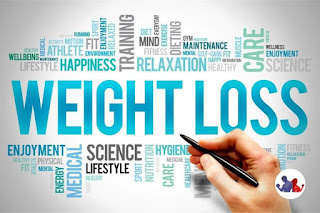Weight Loss and Sleep: Poor sleep and weight struggles often go hand-in-hand. Learn how to get quality rest to feel your best and support your weight-loss goals.
Sleep and weight are strongly connected
Are you getting enough sleep? According to the National Sleep Foundation, most adults need 7-9 hours of sleep a night. While the exact reasons aren't yet clear, insufficient sleep is consistently associated with higher weight.
How poor sleep affects weight
Unfortunately, inadequate sleep affects more than your energy levels. It can sabotage your weight-loss efforts. Research shows a relationship between sleep, appetite, metabolic hormones, hunger, and cravings.
Insufficient sleep can alter hormones related to eating and appetite, decreasing the appetite-suppressing hormone leptin and increasing the appetite-enhancing hormone ghrelin. This double-whammy of increased hunger levels and decreased satiety makes it very difficult to control portions, despite your best intentions.
Insufficient sleep can alter hormones related to eating and appetite, decreasing the appetite-suppressing hormone leptin and increasing the appetite-enhancing hormone ghrelin. This double-whammy of increased hunger levels and decreased satiety makes it very difficult to control portions, despite your best intentions.
Improve your sleep
Sleep affects weight, and get a better night's sleep. While getting a good night's sleep can feel elusive, try one of these strategies to improve your sleep.
Move, especially in daylight
Research shows that exercise helps people fall asleep faster and stay asleep longer. Exposure to natural light throughout the day promotes more rest at night. At the same time, exercising any time of day encourages improved sleep. Worried about exercise being too stimulating at night? Dr. Janata says that this is not a problem for most people.
Keep your eating in check
Insufficient sleep presents multiple challenges to weight loss. While your first goal may be to get better sleep, minimize weight gain by taking charge of your food choices in the meantime.
Lack Of Sleep
A lack of sleep may affect the body’s regulation of these neurotransmitters. In one study, men who got 4 hours of sleep had increased ghrelin and decreased leptin compared to those who got 10 hours of sleep. This dysregulation of ghrelin and leptin may lead to increased appetite and diminished feelings of fullness in people who are sleep deprived.
Many researchers believe that the connection between sleep and dysregulation of neurotransmitters is complicated and additional studies are needed to further understand the neurobiological relationship.
Many researchers believe that the connection between sleep and dysregulation of neurotransmitters is complicated and additional studies are needed to further understand the neurobiological relationship.
also know more about... Salary vs. Hourly Pay: What's the Difference Between them?

Comments
Post a Comment